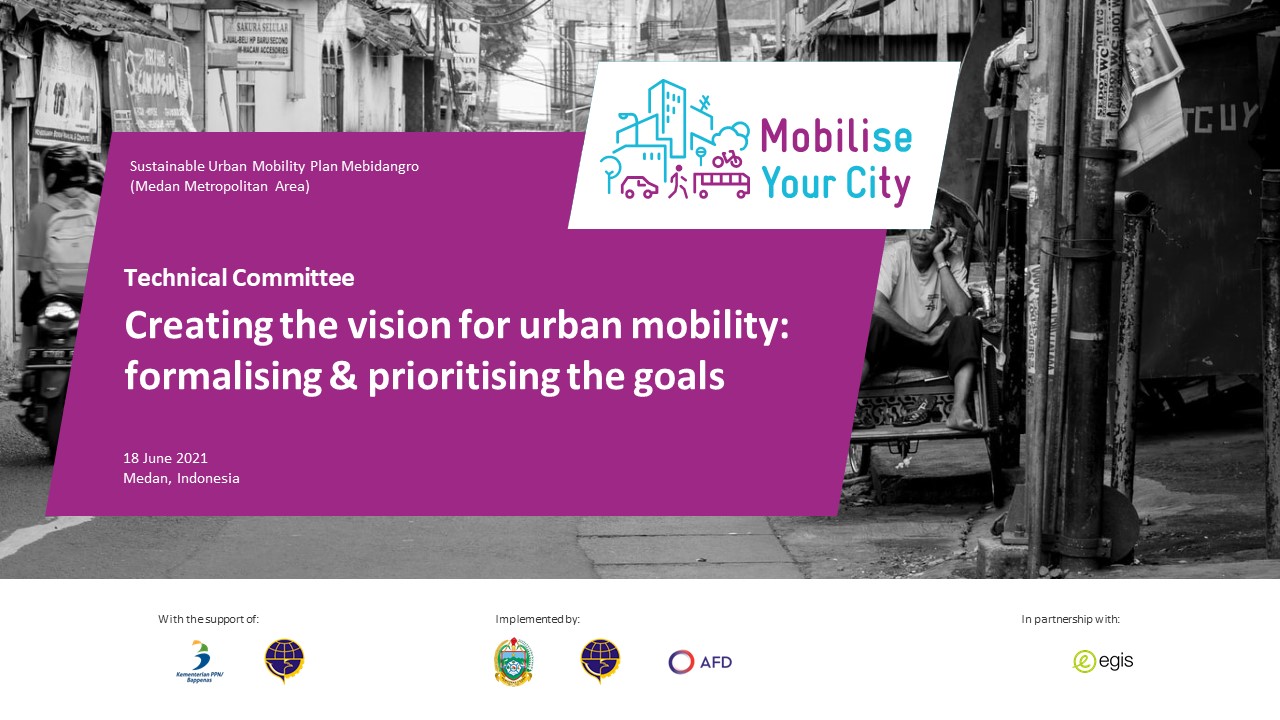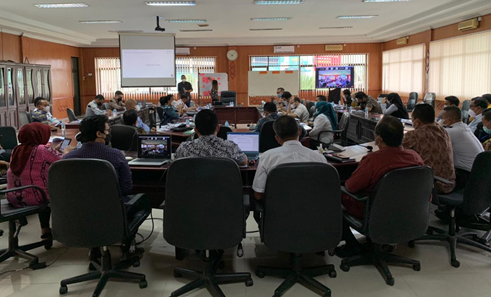Creating the vision for urban mobility, a strategic stage for the elaboration of a Sustainable Urban Mobility Plan for Mebidangro

The SUMP’s Technical Committee identifies, formalises and prioritises the mobility plan’s goals
Since November 2020, the Medan Metropolitan area (Indonesia)[1] has engaged in a process to transform and modernise its urban mobility system with the elaboration of a Sustainable Urban Mobility Plan (SUMP).
After the completion of the diagnosis phase, the elaboration process of the Mebidangro’s SUMP enters in a new stage: the elaboration of the vision of the SUMP. This stage consists in identifying the priorities, providing the main orientations adapted to the territory, and precising the goals of the SUMP.
The SUMP’s Technical Committee met on June 18th, 2021, for a specific and strategic workshop. Based on the salient points of diagnosis done by the Consultant Egis, the workshop aimed at identifying, categorising and prioritising the goals of the SUMP. This workshop was the opportunity to bring together the main stakeholders that are following the SUMP elaboration, in particular the technical departments of the different cities and regencies of Mebidangro as well as the Transportation Agency of North Sumatra Province, region of Medan but also the Regional Development Planning Agency (BAPPEDA) of North Sumatra Province (picture 1).

After identifying the strategic targets of the SUMP as well as its timeline for implementation, the Technical Committee defined priorities on a short term, a medium term and a long-term basis. Priority urban mobility goals as voiced by the Technical Committee are:
Short-term (up to 2023)
- Improve existing Public Transport services for more comfort, safety, security and punctuality
- Improve connectivity between territories and modes in Mebidangro
- Offer safe and quality roads to inhabitants of Mebidangro, for private vehicles as well as pedestrians and non-motorized transport
Medium-term (up to 2028)
- Reach a congestion-free Mebidangro territory
- Improve governance of mobility to cover all aspects in an integrated manner
- Offer mass transit public transportation to Mebidangro inhabitants to connect territories
Long-term (up to 2035 and later)
- Offer modern and trendsetting Public Transport technologies for Mebidangro to become a national example
- Have homogeneous infrastructure and services of transportation all across Mebidangro
- Decrease Greenhouse Gases (GHG) emissions related to mobility by 26%
- Have coherent and enforced land use that allow efficiency of public infrastructure, including efficient urban mobility
Towards the elaboration of scenarios to improve sustainable mobility for the Medan Metropolitan Area
Several scenarios will be developed for sustainable urban mobility in the Medan Metropolitan Area based on the diagnosis and the inputs shared by the stakeholders during this workshop. Beside the Business As Usual scenario (i.e. the scenario for which nothing is done to improve mobility in the Medan Metropolitan Area), the objective is to define clear scenarios and a clear action plan that adopts measures to ensure the transition towards a more sustainable mobility with a clear reduction of GHG emission. Several challenges will be taken into account such as the preparation Mebidangro transit authority roles as well as the finding of adequate financings to implement this Sustainable Urban Mobility Plan.
Under the MobiliseYourCity Partnership, this Steering Committee meeting was organised by the Transportation Agency of North Sumatra Province, facilitated by AFD, and animated by Egis Rail.
[1] Also known as Mebidangro as it gathers the City of Medan, the City of Binjai, the Regency of Deli Serdang and the Regency of Karo.